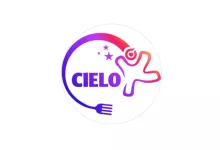ERASMUS+ CIELO: an international project that focuses on children's health
The European Union program ERASMUS+ authorized the proposal that seeks to prevent childhood obesity and promote mental health in Latin America; University of Gdansk collaborates in the project together with universities from Latvia, Finland, Chile, Costa Rica and Mexico
Education and technology can improve children's health in Latin America. This is the idea that drives the efforts of ERASMUS+ CIELO, a project that brings together 12 universities from various countries to develop a training program for students, teachers and health professionals who can address one of the biggest problems in the region. : childhood obesity and its effects on mental health. In July 2023, the European Union ERASMUS+ program authorized funding and support for the project submitted to the 'Erasmus+ Capacity Development' call. Since then, an international team of collaborators has actions to take advantage of this opportunity to promote an active and healthy childhood.
ERASMUS+ CIELO (Innovative Curriculum for Latin America to develop capacities in Higher Education Institutions (IES) to prevent obesity) is run by 3 European and 9 Latin American universities, specifically from the countries of Chile, Costa Rica and Mexico. Participating: Riga Technical University (Latvia), Turku University of Applied Sciences (Finland) and The University of Gdańsk (Poland); Universidad Católica Silva Henríquez and Universidad Del Alba, from Chile; the University for International Cooperation and Hispano-American University, of Costa Rica; and Universidad La Salle México, Universidad La Salle Noroeste, Universidad La Salle Oaxaca, Universidad La Salle Victoria and Universidad La Salle Pachuca, from Mexico.
The objective of this project is to increase the skills of IES teachers and students in the field of health promotion in Latin America in order to prevent childhood obesity and promote mental health. This purpose will be achieved through the cooperative development of a postgraduate training program and an eToolkit mobile application for the nine participating Latin American universities.
Currently, collaborators from each university are working on diagnosing the demands of care professionals to face these social challenges that involve everyone in the communities of Chile, Costa Rica and Mexico: families, educational institutions, scientific research. and the public sphere.





